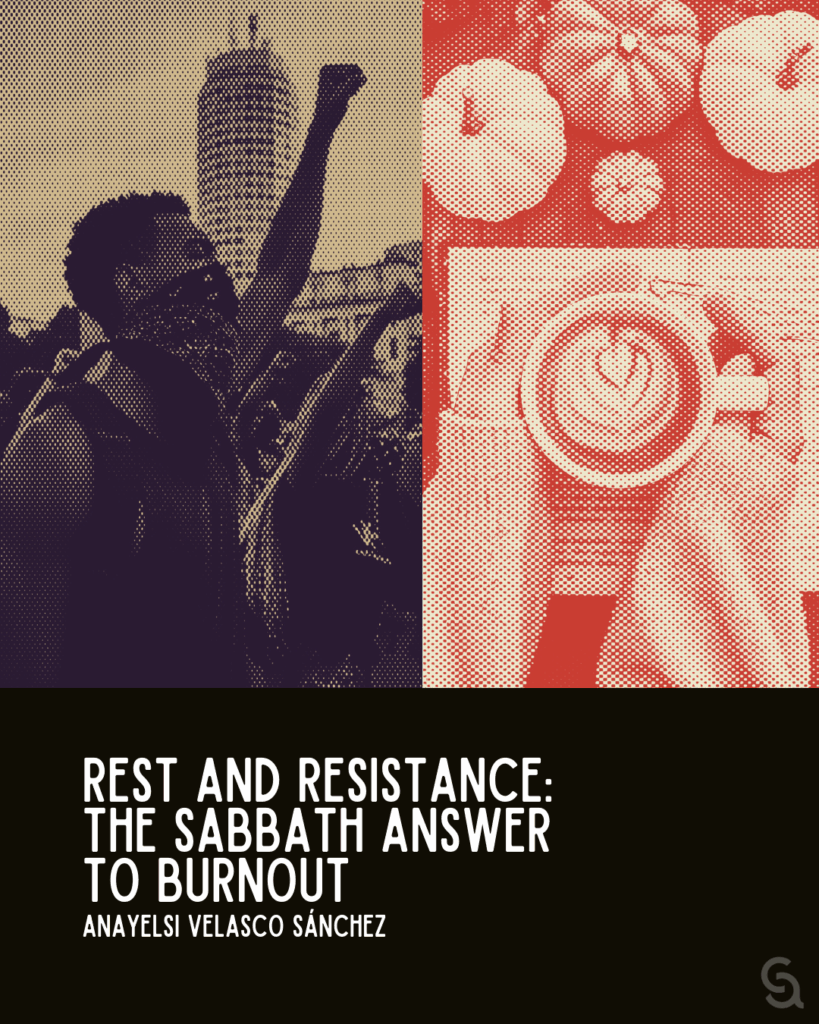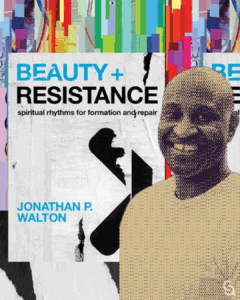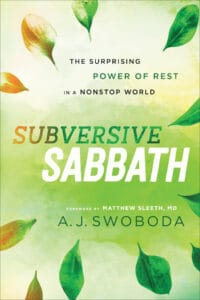Tricia Hersey, founde r of The Nap Ministry, reminds us: “Rest is a form of resistance, because it disrupts and pushes back against capitalism and white supremacy.” But that’s only true when rest is paired with resistance. Rest that turns away from the struggle is not holy rebellion; it’s abdication.
r of The Nap Ministry, reminds us: “Rest is a form of resistance, because it disrupts and pushes back against capitalism and white supremacy.” But that’s only true when rest is paired with resistance. Rest that turns away from the struggle is not holy rebellion; it’s abdication.
This truth has been heavy on my mind as I pass the days here in occupied D.C. I am having to balance caring for myself as an immigrant of Color with caring for my community in a city under siege. The question I and many others are having to ask ourselves is: “How do we claim Sabbath as God’s gift of liberation without using it as an excuse to hide from the fight?”
This tension is not new; others before me have wrestled with how to honor rest without abandoning resistance, shaping a tradition that understands Sabbath and stillness as acts of defiance rather than escape. While Tricia Hersey coined and popularized “Rest is Resistance” in its current form, the phrase is rooted in a lineage of Black, feminist, and liberationist thought that frames rest, care, and embodiment as political refusal.
Rest has always been a part of God‘s creation. “On the seventh day God finished the work… and rested” (Gen. 2:2). The link between rest and liberation is reaffirmed in Deuteronomy 5: “Remember that you were slaves in Egypt and that the Lord your God brought you out of there with a mighty hand and an outstretched arm. Therefore the Lord your God has commanded you to observe the Sabbath day.” Jesus himself reinforces this truth: “The Sabbath was made for humankind, not humankind for the Sabbath” (Mark 2:27). Sabbath is not a burdensome legalism but a justice practice.
When Rest Becomes Commodity Instead of Liberation
Even though rest was meant to free us and remind us of God’s justice, our modern world has repackaged it as a commodity—something to buy rather than a practice that heals and resists. In our world, even rest and resistance are for sale. Self-care has been made to look like overpriced spa days, luxury retreats, mani-pedis, and more. These are peddled as the solution to our exhaustion, yet they do nothing to dismantle the systems that cause that exhaustion in the first place. This distortion trivializes rest. It weaponizes it, turning what should be a collective practice of liberation into an individualistic distraction.
In All About Love, we learn from bell hooks that “self-love cannot flourish in isolation.” Capitalism has fed us the lie that it can. Capitalism prefers a version of rest that is individualized, consumable, and disconnected from structural change. It is not threatened by a weekend getaway that doesn’t lead to organizing, protest, or mutual aid. It is terrified, however, of collective Sabbath that teaches people to stop producing, stop buying, and start imagining something better.
I understand grasping for even this watered-down version of rest. Liberation work is exhausting and endless. Without the opportunity for rest, we find people burned out and no longer able to run the course. But endurance is not the same as liberation; Sabbath challenges us not just to “keep going,” but to keep going in a way that reflects the justice we seek.
Audre Lorde famously said, “Caring for myself is not self-indulgence, it is self-preservation, and that is an act of political warfare.” This is only true if our rest is tied to resistance. Burnout isn’t a badge of honor, but neither is disappearing from the fight and calling it “Sabbath.”
Sabbath is not a passive concept. Even when Jesus withdrew from the people to pray, he did it in the middle of healing, teaching, and organizing a counter-empire community. He rested not only for himself but for his people. He rested for the resistance.
We have to ask ourselves: Does our rest draw us back to the work of resistance? Does it strengthen us for the fight ahead? Or does it serve as an escape from reality and a deflection of responsibility?
The truth is that we cannot all rest equally. The identities we hold and the ways we move through the world are not equal. Poverty, systemic racism, ableism, misogyny—all shape our reality. “Rest is resistance” can be co-opted by individuals who aren’t under the same level of surveillance or oppression. For some it’s become a fun hashtag for brunch photos, not a reclamation of time and peace in the face of fascism.
This is why a theology of Sabbath has to be rooted in justice and not personal convenience. How can we honor our rest as resistance if we’re not even able to acknowledge who was denied rest and why? When it is divorced from justice, rest becomes a tool of privilege that ignores our collective struggle.
For those already marginalized, choosing to rest is often a radical act because it defies a system that demands their constant labor, compliance, and silence. For those with privilege, however, rest only becomes resistance when it is intentionally tethered to dismantling the very structures that make rest unsafe or unattainable for others.
Sabbath and Protest: A Rhythm of Resistance
Protest and Sabbath are not antithetical. They are partners in the same holy work. It is a struggle to remember who we are outside of capitalism. Protest and Sabbath create the space where we can remember who we are. Both of these practices declare that there is another way of being. One without the other is incomplete. Together they form a rhythm of resistance.
Sabbath is not a luxury, and protest is not optional. So, what would it mean for you to build a rhythm of Sabbath and protest in your own life? What would it look like to follow Jesus in the work of liberation?
 Born in Venezuela and U.S.-raised, AnaYelsi Velasco Sánchez is a visual artist, justice and liberation consultant, and community organizer who specializes in interlocking justice to create sustainable social change. Through her business, AVS Consulting, AnaYelsi works closely with organizations and businesses to design impactful strategies that foster healing and liberation.
Born in Venezuela and U.S.-raised, AnaYelsi Velasco Sánchez is a visual artist, justice and liberation consultant, and community organizer who specializes in interlocking justice to create sustainable social change. Through her business, AVS Consulting, AnaYelsi works closely with organizations and businesses to design impactful strategies that foster healing and liberation.
She empowers individuals and communities with her diverse skill set, offering tailored anti-oppressive strategic plans, skills-building workshops, and advising on initiatives that connect art, culture, healing, and social justice. Whether supporting nonprofits, cultural institutions, or advocacy groups, Anayelsi empowers her partners to advance justice while ensuring that marginalized voices are at the center of every conversation. AnaYelsi also serves as the Board Chair of the Festival Center in Washington, DC.


